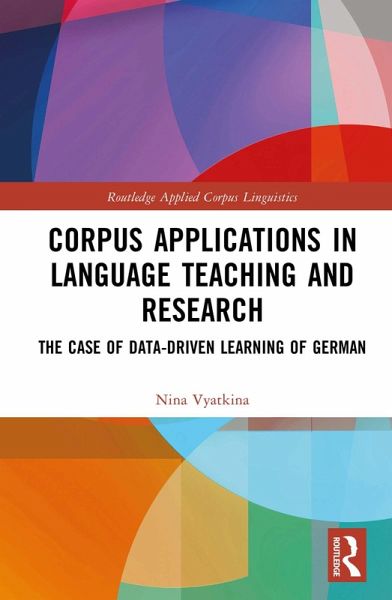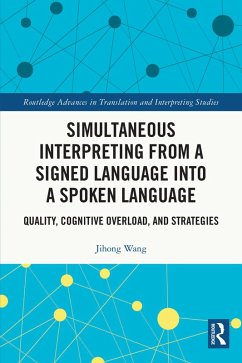
Corpus Applications in Language Teaching and Research (eBook, ePUB)
The Case of Data-Driven Learning of German
Versandkostenfrei!
Sofort per Download lieferbar
45,95 €
inkl. MwSt.
Weitere Ausgaben:

PAYBACK Punkte
23 °P sammeln!
Corpus Applications in Language Teaching and Research: The Case of Data-Driven Learning of German provides a historical overview of corpus applications in language teaching with a focus on German. The book identifies challenges in using corpus applications and data-driven learning (DDL) research for Languages Other Than English (LOTEs) and addresses these challenges through various approaches. Overall, this book: surveys corpus applications for teaching and learning German, highlighting the growth of the L2 German DDL field and identifying trends in integrating DDL into pedagogical practice; p...
Corpus Applications in Language Teaching and Research: The Case of Data-Driven Learning of German provides a historical overview of corpus applications in language teaching with a focus on German. The book identifies challenges in using corpus applications and data-driven learning (DDL) research for Languages Other Than English (LOTEs) and addresses these challenges through various approaches. Overall, this book:
This book offers insights and resources for researchers, language teaching practitioners, and students interested in corpus-based learning and teaching methods. While the focus is on teaching German to English-speaking students, the book's findings have broader applicability to language teaching and learning in different contexts.
- surveys corpus applications for teaching and learning German, highlighting the growth of the L2 German DDL field and identifying trends in integrating DDL into pedagogical practice;
- presents empirical research on the effectiveness of DDL applications for teaching and learning German in comparison with research on English and other LOTEs, emphasizing the need for expanding the scope of DDL research to include more languages, skills, and study types;
- compares teaching interventions for L2 collocations in the fields of Instructed Second Language Acquisition (ISLA) and DDL, highlighting methodological differences between the two paradigms and proposing a combined ISLA/DDL framework to bridge the disconnect;
- showcases a successful DDL intervention that resulted in significant learning gains in German collocation knowledge, filling a gap in DDL research;
- proposes an Open Educational Resource (OER) for teaching and learning German, incorporating open access corpora, learner-fit criteria, new tools and technology, and usage-based learning principles;
- examines the current difficulties encountered by the DDL field and highlights potential directions for future research and pedagogical approaches.
This book offers insights and resources for researchers, language teaching practitioners, and students interested in corpus-based learning and teaching methods. While the focus is on teaching German to English-speaking students, the book's findings have broader applicability to language teaching and learning in different contexts.
Dieser Download kann aus rechtlichen Gründen nur mit Rechnungsadresse in A, B, BG, CY, CZ, D, DK, EW, E, FIN, F, GR, HR, H, IRL, I, LT, L, LR, M, NL, PL, P, R, S, SLO, SK ausgeliefert werden.













